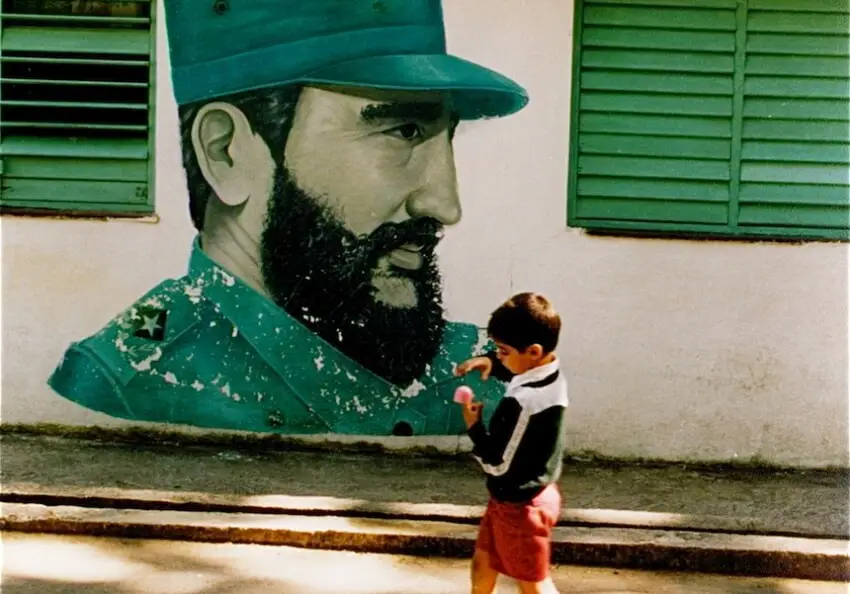I am critical of Cuba not because I am anti-Communist but because I remain a Communist.
Zizek: 'I am critical of Cuba not because I am anti-Communist but because I remain a Communist.' Click To TweetWe all remember the classic scene from cartoons: a cat walks over the precipice and magically goes on, floating in the air—it falls down only when it looks down and becomes aware that it has no ground under its feet. In the same way, one can say that, in the last decades, Cuban “socialism” continued to live only because it didn’t yet notice it was already dead.
It is clear that Fidel Castro was different from the usual figure of a Communist leader, and that Cuban revolution itself was something unique. Its specificity is best rendered by the duality of Fidel and Che Guevara: Fidel, the actual Leader, supreme authority of the State, versus Che, the eternal revolutionary rebel who could not resign himself to just running a State. Is this not something like a Soviet Union in an alternative past in which Leon Trotsky would not have been rejected as the arch-traitor? Imagine that, in the mid-1920s, Trotsky were to emigrate and renounce Soviet citizenship in order to incite permanent revolution around the world, and then die in the highlands of Papua New Guinea soon afterwards. After his death, Stalin would have elevated Trotsky into a cult, and monuments celebrating their friendship, along with iconic t-shirts, would proliferate all around the USSR.
One gets tired of the conflicting stories of the economic failure and human rights abuses in Cuba, as well as of the twins of education and healthcare that are always trotted out by the friends of the revolution. One gets tired even of the really great story of how a small country can resist the biggest superpower (yes, with the help of the other superpower).
The saddest thing about today’s Cuba is a feature clearly rendered by the crime novels of Cuba’s literary icon Leonardo Padura, which features detective Mario Conde and are set in today’s Havana. Padura’s atmosphere is the one not so much of poverty and oppression as of missed chances, of living in a part of the world to a large extent bypassed by the tremendous economic and social changes of the last decades.
All of the above mentioned stories do not change the sad fact that the Cuban revolution did not produce a social model relevant for the eventual Communist future.
[Extract. Appeared in In These Times on November 29th 2016.]
